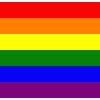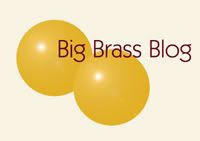Bias at NPR
There is much uproar now about biased reporting at NPR (National Public Radio) and PBS. Perhaps it is difficult to differentiate the true from the false in the numerous reports. Since I moved to Cincinnati, I have been blessed with access to 4 different NPR stations. I listen to all of them and belong to one of them.
Whereas I disagree with the Bush administration's attempt to control NPR by molding it in their own image, this does not mean that ALL complaints concerning NPR's coverage are illegitimate.
More than four years ago I started hearing complaints that NPR's coverage of Israel and the Palestinians was biased. I hadn't noticed. At the time, Linda Gradstein was giving a speech in Cincinnati and I was covering the event for the local Jewish newspaper. So I visited a couple of media watchdog sites, CAMERA and Honest Reporting, and started listening more carefully to NPR's coverage of the Middle East. Over time I realized that NPR's coverage of this issue was indeed biased in a most unpleasant way. Hearing Julie McCarthy, in particular, makes me want to throw up and I immediately switch to a non-NPR radio station. I find CAMERA to have a rightward slant but am positively impressed with Honest Reporting. I have written several emails to NPR's WVXU-FM concerning its additional incitement by its truly odious Sunday evening local programming which cloaks anti-Semitism in social justice language and even broadcasts the often-biased BBC News from Midnight - 5 AM. Many people no longer financially support WVXU or patronize its advertisers due to its lack of responsiveness on this issue. Possibly as a consequence, WVXU lost "All Things Considered" and has since been sold to another NPR station. For a year after I went back to work full-time, I wanted to support Public Radio but my conscience would not permit me to do so. Finally I picked the least-offensive NPR station in the Tristate and became a member.
Here is an article describing problems caused by the Bush administration's attempts to censor NPR:
(05/20/2005)
NPR Radio Wars Putting Jewish Groups In A Bind
Perceived Mideast bias dragged into wider fight over censorship.
James D. Besser - Washington Correspondent
The (NY) Jewish Week
Longstanding complaints by pro-Israel groups about unbalanced Mideast coverage by National Public Radio could be ammunition in a raging battle over what the Bush administration sees as the network’s liberal bias.
That pleases pro-Israel media watchdog groups that have been pressing NPR to end what it calls the station’s journalistic bias against Israel. But it worries some Jewish leaders because of the possibility the pro-Israel agenda could become ensnared in a political spat involving charges of censorship and partisan bias.
“It’s a very complicated situation for the Jewish community,” said University of Richmond political scientist Akiba Covitz. “This controversy is part of a broader trend of trying to limit criticism of the president. He wants no government money going to anyone who does not support him, and that means NPR.”
At the same time, Covitz said, the Jewish community has legitimate grievances against the network for unbalanced, unfair reporting on Mideast matters that has improved only slightly, despite intensive efforts by Jewish leaders and media watchdog groups.
“NPR is a major opinion maker,” Covitz said, “and you have to be wary of a news organization that has such a hard time coming down the middle on such an important issue.”
[snip]
Some Jewish leaders worry that two separate issues — the fight over NPR’s skewed Mideast coverage and the administration’s anger over what it sees as left-wing bias in coverage of its policies — are being mixed together.
“Jews, of all people, have perhaps the most to lose when the media becomes biased in one direction or another,” Covitz said, citing a pattern of unbalanced reporting by several top NPR reporters who cover the Mideast. “At the same time, Jews have an interest in making sure the government stays out of the spin business.”
The current controversy, he said, smacks of an administration that wants to quash dissent from the liberal NPR network.
Alan Sagner, a former CPB chairman, agrees.
“It’s part of the change that this administration wants to make in every aspect of American life: in the separation of church and state, in the environment, in women’s rights, in the representation of the truth,” said Sagner, who served in the top CPB post in the late 1990s. “It’s about censoring views this administration doesn’t like.”
The current controversy, he said, is mostly about administration anger at PBS — the television arm of public broadcasting — over its coverage of the Bush administration’s domestic policies.
“They’re using [charges about NPR’s Mideast coverage] as leverage to support their irresponsible positions,” he said. The Israel issue “is getting caught up in something that’s basically a partisan battle.”
[snip]
Other Jewish leaders agree NPR’s coverage has been a problem but give it more credit for improving.
“NPR has been responsive,” said Abraham Foxman, national director of the Anti-Defamation League. “Our dialogue with them has produced some improvement.
“Has it satisfied all our expectations? Of course not. But they are more open, more available to us and in certain respects better. They can no longer be called ‘National Palestinian Radio.’ ”
Foxman said Jewish concerns about fair coverage on NPR should be distinguished from administration concerns that its policies are not being fairly represented on the public network — and that the two issues shouldn’t get confused.
Other Jewish leaders warned that the Jewish community could get caught in an ugly crossfire.
“There are real risks here,” said an official with a major Jewish group. “This is going to be seen as an attempt at censoring the press. Do we want Jewish and pro-Israel organizations to be associated with that?
“The administration isn’t cracking down on NPR because it’s unfair to Israel; it’s cracking down because it doesn’t like the coverage of its policies. Our concerns could get lost in the backlash to that.”
© 2000 - 2002 The Jewish Week, Inc. All rights reserved.
|
Whereas I disagree with the Bush administration's attempt to control NPR by molding it in their own image, this does not mean that ALL complaints concerning NPR's coverage are illegitimate.
More than four years ago I started hearing complaints that NPR's coverage of Israel and the Palestinians was biased. I hadn't noticed. At the time, Linda Gradstein was giving a speech in Cincinnati and I was covering the event for the local Jewish newspaper. So I visited a couple of media watchdog sites, CAMERA and Honest Reporting, and started listening more carefully to NPR's coverage of the Middle East. Over time I realized that NPR's coverage of this issue was indeed biased in a most unpleasant way. Hearing Julie McCarthy, in particular, makes me want to throw up and I immediately switch to a non-NPR radio station. I find CAMERA to have a rightward slant but am positively impressed with Honest Reporting. I have written several emails to NPR's WVXU-FM concerning its additional incitement by its truly odious Sunday evening local programming which cloaks anti-Semitism in social justice language and even broadcasts the often-biased BBC News from Midnight - 5 AM. Many people no longer financially support WVXU or patronize its advertisers due to its lack of responsiveness on this issue. Possibly as a consequence, WVXU lost "All Things Considered" and has since been sold to another NPR station. For a year after I went back to work full-time, I wanted to support Public Radio but my conscience would not permit me to do so. Finally I picked the least-offensive NPR station in the Tristate and became a member.
Here is an article describing problems caused by the Bush administration's attempts to censor NPR:
(05/20/2005)
NPR Radio Wars Putting Jewish Groups In A Bind
Perceived Mideast bias dragged into wider fight over censorship.
James D. Besser - Washington Correspondent
The (NY) Jewish Week
Longstanding complaints by pro-Israel groups about unbalanced Mideast coverage by National Public Radio could be ammunition in a raging battle over what the Bush administration sees as the network’s liberal bias.
That pleases pro-Israel media watchdog groups that have been pressing NPR to end what it calls the station’s journalistic bias against Israel. But it worries some Jewish leaders because of the possibility the pro-Israel agenda could become ensnared in a political spat involving charges of censorship and partisan bias.
“It’s a very complicated situation for the Jewish community,” said University of Richmond political scientist Akiba Covitz. “This controversy is part of a broader trend of trying to limit criticism of the president. He wants no government money going to anyone who does not support him, and that means NPR.”
At the same time, Covitz said, the Jewish community has legitimate grievances against the network for unbalanced, unfair reporting on Mideast matters that has improved only slightly, despite intensive efforts by Jewish leaders and media watchdog groups.
“NPR is a major opinion maker,” Covitz said, “and you have to be wary of a news organization that has such a hard time coming down the middle on such an important issue.”
[snip]
Some Jewish leaders worry that two separate issues — the fight over NPR’s skewed Mideast coverage and the administration’s anger over what it sees as left-wing bias in coverage of its policies — are being mixed together.
“Jews, of all people, have perhaps the most to lose when the media becomes biased in one direction or another,” Covitz said, citing a pattern of unbalanced reporting by several top NPR reporters who cover the Mideast. “At the same time, Jews have an interest in making sure the government stays out of the spin business.”
The current controversy, he said, smacks of an administration that wants to quash dissent from the liberal NPR network.
Alan Sagner, a former CPB chairman, agrees.
“It’s part of the change that this administration wants to make in every aspect of American life: in the separation of church and state, in the environment, in women’s rights, in the representation of the truth,” said Sagner, who served in the top CPB post in the late 1990s. “It’s about censoring views this administration doesn’t like.”
The current controversy, he said, is mostly about administration anger at PBS — the television arm of public broadcasting — over its coverage of the Bush administration’s domestic policies.
“They’re using [charges about NPR’s Mideast coverage] as leverage to support their irresponsible positions,” he said. The Israel issue “is getting caught up in something that’s basically a partisan battle.”
[snip]
Other Jewish leaders agree NPR’s coverage has been a problem but give it more credit for improving.
“NPR has been responsive,” said Abraham Foxman, national director of the Anti-Defamation League. “Our dialogue with them has produced some improvement.
“Has it satisfied all our expectations? Of course not. But they are more open, more available to us and in certain respects better. They can no longer be called ‘National Palestinian Radio.’ ”
Foxman said Jewish concerns about fair coverage on NPR should be distinguished from administration concerns that its policies are not being fairly represented on the public network — and that the two issues shouldn’t get confused.
Other Jewish leaders warned that the Jewish community could get caught in an ugly crossfire.
“There are real risks here,” said an official with a major Jewish group. “This is going to be seen as an attempt at censoring the press. Do we want Jewish and pro-Israel organizations to be associated with that?
“The administration isn’t cracking down on NPR because it’s unfair to Israel; it’s cracking down because it doesn’t like the coverage of its policies. Our concerns could get lost in the backlash to that.”
© 2000 - 2002 The Jewish Week, Inc. All rights reserved.






